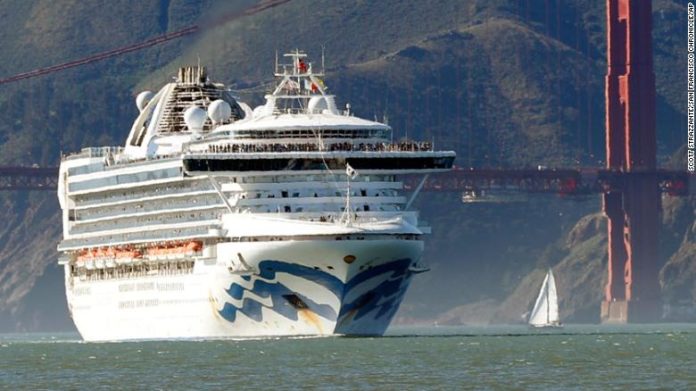Stand.earth, a grassroots environmental organization, is calling on Transport Canada to do a better job at protecting marine life and coastal communities from cruise ships which have been historically harmful to the region and its wildlife.
Earlier this week, on May 1st, the federal government announced an extension of ‘voluntary environmental measures’ that cruise ships can choose to abide by, or ignore for the 2023 cruise season.
These voluntary measures that impact BC’s coastlines are:
- To avoid discharging greywater and sewage within three nautical miles of shore
- To treat greywater with sewage before it is discharged between three and 12 nautical miles from shore
- To use an approved device to treat sewage between three and 12 nautical miles from shore
None of these measures are mandatory or carry any consequence for ignoring, according to Stand.earth.
”In principle, these rules have the right idea but are still not strong enough, and as long as they remain voluntary, Canada will continue to miss the boat on defending ocean ecosystems from the tidal wave of pollution from vessels,” said Anna Barford, Canada Shipping Campaigner at Stand.earth.
“Transport Canada promised mandatory versions of these regulations in 2023, but this week we learned that endangered species and biodiversity of the West Coast will remain vulnerable as ships continue to treat the coastline as their personal toilet bowl.”
In April, as the first cruise ship arrived in the Port of Vancouver, a petition with over 50,000 signatures was handed to Canada’s Transport Minister, Omar Alghabra calling for an end to cruise ship dumping.
In 2019, over one million people came in and out of Victoria’s Ogden Point via 30 cruise ships.
Also in 2019, approximately 32 billion litres of sewage, greywater and acidic fossil fuel wastes were dumped along the BC coast by those very same ships. All of these substances can be extremely harmful to the environment and its aquatic wildlife.
These cruise ships tremendously help Victoria’s and BC’s economies, but Stand.earth is calling on the government to make sure these companies recognize the fragility of the environment they travel through.
Fast forward to 2022, Transport Canada announced incoming improvements to measures on greywater and sewage pollution coming from ‘scrubbers’ — exhaust gas cleaning systems that allow ships to burn harmful, dirty fuel.
According to Stand.earth, the cruise ship industry talked Transport Canada out of the environmental measures on scrubbers and they still have yet to be enacted.
”Our neighbours in Washington, Alaska and California have brought in rules to prevent toilet bowls forming under their jurisdiction, to ban acid dumping machines and to put the onus on the polluter to prevent pollution,” said Barford.
“Canada seems to be comfortable lining the pockets of cruise executives at the expense of thriving coastal ecosystems and communities.”
Transport Canada says that current standards exceed international standards and that a more permanent solution is in the works.
“The Enhanced Environmental Measures for the 2023 Cruise Season was issued on May 1st, 2023 as a reminder that the 2022 enhanced measures should continue to be followed until they become permanent through the Interim Order or regulation,” said Sau Sau Liu, a spokesperson for Transport Canada.
She added that vessels use treatment systems to disinfect sewage and greywater is also supposed to be treated.
In regards to scrubbers, Liu said, “Transport Canada continues to study the environmental impacts of the use of different types of scrubber systems and plans to work with the maritime industry to develop a path forward to address the issue of washwater discharge in Canadian waters on a permanent basis through a different regulatory process.”



